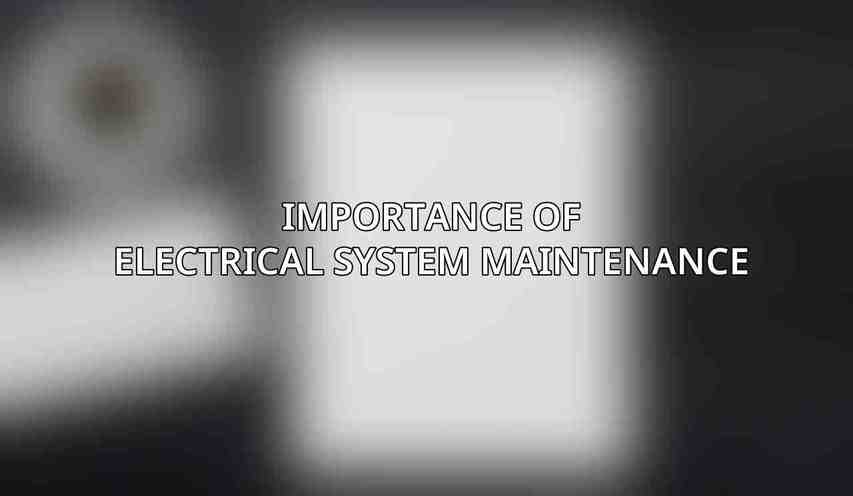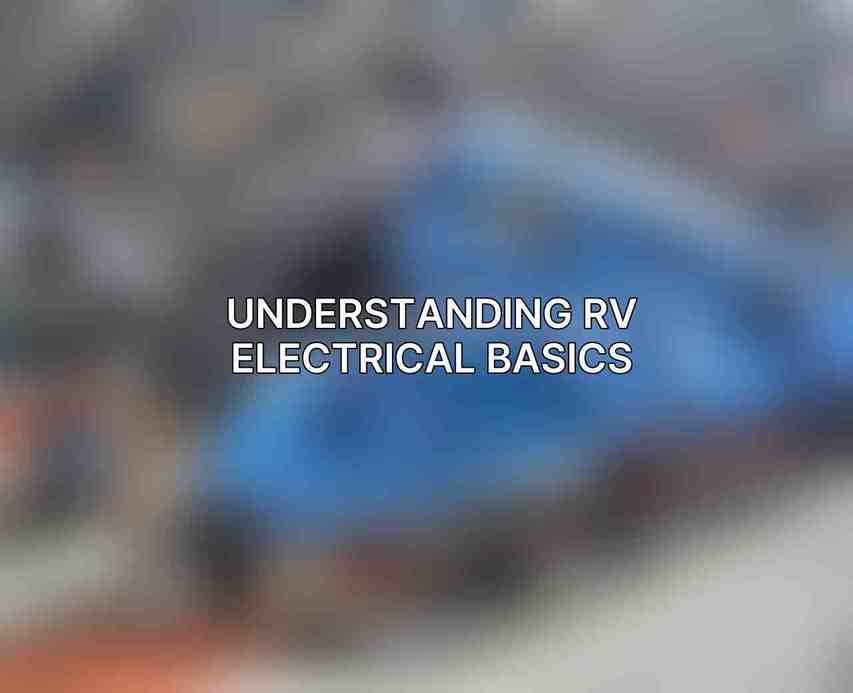Maintaining your RV’s electrical system is crucial for a smooth and safe journey on the road. Understanding and managing your RV’s electrical components can prevent costly repairs and ensure a hassle-free travel experience. The electrical system in an RV powers essential appliances, lighting, and devices, making it essential for everyday comfort and convenience.
Importance of Electrical System Maintenance

Regular maintenance of your RV’s electrical system can prevent unexpected breakdowns and ensure the longevity of your appliances and electronics. By staying on top of maintenance tasks, you can avoid costly repairs and replacements down the road.
Overview of RV Electrical Components
RV electrical systems consist of various components that work together to provide power to your vehicle. Understanding the roles of these components is key to managing your RV’s electrical system effectively. From batteries to converters and inverters, each part plays a crucial role in keeping your RV powered and functional.
Understanding RV Electrical Basics

To effectively manage your RV’s electrical system, it’s essential to grasp the fundamental concepts of RV electricity.
Voltage: AC vs DC
RVs utilize both alternating current (AC) and direct current (DC) electrical systems. Understanding the differences between these two types of electricity is vital for safely operating and maintaining your RV’s electrical system.
Amperage: Current Draw
Amperage refers to the amount of electrical current flowing through a circuit. Knowing how to manage amperage is essential for preventing overloads and ensuring the efficient operation of your RV’s electrical components. Learn more about Top RV Kitchen Gadgets to Elevate Your Mobile Culinary Experience
Circuitry: Types and Functions
RV electrical circuits are designed to distribute power to different appliances and devices. Understanding the types of circuits in your RV and how they function can help you troubleshoot electrical issues and make necessary repairs. Learn more about Top RV Storage Solutions for Efficient Space Management
Essential Electrical Components
Several key components make up your RV’s electrical system, each serving a specific purpose to ensure reliable power supply. Find more on Innovative Space-Saving Storage Solutions for RV Living
| Component | Description |
|---|---|
| Batteries | Power storage for off-grid camping |
| Converters and Inverters | Manage and convert power efficiently |
| Generator | Back-up power source for off-grid usage |
| Shore Power | External electricity hookup at campgrounds |
| Electrical Panel | Control center for circuit distribution |
Batteries: Types and Capacities
Choosing the right type and capacity of batteries for your RV is crucial for powering your appliances and electronics efficiently. Understanding the different battery options available can help you make informed decisions for your power needs.
Converters and Inverters: Power Management
Converters and inverters play a crucial role in managing the power supply in your RV. While converters transform external AC power into DC power for charging batteries, inverters convert DC power into usable AC power for your appliances.
Generator: Back-up Power
Generators provide a reliable source of power when camping off-grid or during power outages. Understanding how to properly maintain and operate a generator can ensure a seamless power supply wherever your RV adventures take you.
Shore Power: External Electricity
Shore power connections at campgrounds allow you to plug your RV into an external power source. Knowing how to safely connect to shore power and manage your electrical usage while hooked up can enhance your camping experience. Explore further with Best RV Upgrade Accessories for a Modernized Experience
Electrical Panel: Circuit Control
The electrical panel in your RV serves as the control center for distributing power to different circuits. Understanding how to navigate the electrical panel can help you troubleshoot issues and manage your power usage effectively. Read more about this on Essential RV Maintenance Products Every Owner Needs
Stay tuned for the next part of the guide where we delve into electrical safety and troubleshooting tips for your RV’s electrical system!
Frequently Asked Questions
What is an RV’s electrical system?
An RV’s electrical system refers to the components that power the various electrical devices inside the vehicle, including lights, appliances, and outlets.
How do I check the battery levels in my RV?
To check the battery levels in your RV, use a multimeter to measure the voltage. Fully charged batteries typically read around 12.6 volts.
What should I do if I blow a fuse in my RV?
If you blow a fuse in your RV, first locate the fuse panel. Check the fuses to identify the blown one and replace it with a new fuse of the same amperage.
Is it necessary to have a surge protector for my RV’s electrical system?
Yes, it is highly recommended to use a surge protector with your RV’s electrical system to protect your devices from voltage spikes and power surges.
How often should I perform maintenance on my RV’s electrical system?
Regularly inspect and maintain your RV’s electrical system at least once a year to ensure that all components are in working order and to prevent any potential issues.

